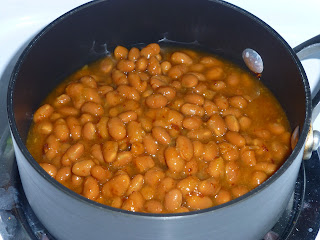This move has quite literally been one stressor after another. If not one thing, then two things come up that could potentially cancel our orders. All of us have had a medical issue, at some point or another, since receiving the orders, that we thought for sure was going to prevent us from going. Then there have been military issues for my husband: passing a PT test (this is a feat in and of itself even when you don’t have orders depending on it), passing a medical evaluation, and today, qualifying on his weapon. (Which means, he had to demonstrate, in several positions, wearing a suffocating gas mask, that he could accurately shoot a target with an M16). He did pass, or “qualify,” thankfully. But there are still a few more hurdles between now and boarding the plane.
Next on the to-do list: obtaining Visas! The UK requires any foreigner staying in the country for more than six months to obtain a Visa, including US military members and dependents. This will be an interesting experience!
So I promised y’all (an unmentionable amount of time ago) that I would try out a Full English breakfast and report back. Well I finally got around to that this past weekend. (Yay me!) For this British dish, I again turned to The Guardian’s Word of Mouth blog. I like their site because they provide (sometimes comical) background commentary along with the recipes.
An exact recipe was not really required for this dish, which made it easier to tackle.
Unfortunately, an important staple of the “Full English” is missing from my rendition: Black Pudding. There are two reasons for this. One: while it may be available somewhere in the US, it is not available (and rarely heard of) anywhere near the small Southern state from which I hail. Two: it sounds absolutely revolting and, if I could have found it and purchased it, I wouldn’t have because I wouldn’t have eaten it.
For those of you who
are unfamiliar with Black Pudding (or Blood Pudding), it is a type of
sausage “made by cooking blood or dried blood with a filler until
it is thick enough to congeal when cooled” (wikipedia.com).
If that sounds appetizing to you, please feel free to add it to your
version of the Full English (everyone makes their own version,
apparently).
Also, real English back bacon is not available near me either. Therefore, I had to substitute with regular “American” bacon. The British-preferred back bacon is, obviously, a different cut of pork. It more closely resembles ham (in pictures) rather than the strip bacon we use here in the States. Also, it is noticeably leaner (and doesn't shrink nearly as much).
The bacon (in any form, really) is a typical item on American breakfast plates, as well as the eggs and toast. The mushrooms, tomatoes, and beans, staples in most Full English breakfasts, were a new-fangled taste for my "breakfast buds."
I was admittedly
surprised with the mushrooms, cooked according to The Guardian’s
recommendations: sautéed in butter, seasoned with salt and thyme.
They turned out to be very tasty and not altogether un-breakfasty.
The tomatoes. I was
not impressed with the tomatoes. And that really could be my fault.
From researching several versions of this breakfast, I found that many
people cook their breakfast tomatoes differently. Many choose to
grill them. I do not have a grill anymore so I chose to season and
roast them (again, per The Guardian’s instruction.) They did not
turn out well and were not a welcomed flavor for breakfast.
I would never have thought to include them in my breakfasts. The only time I eat tomatoes is on pasta or salads...
I would never have thought to include them in my breakfasts. The only time I eat tomatoes is on pasta or salads...
Heinz beans were recommended so Heinz beans I procured. However, there were several flavors available and Word of Mouth does not specify what flavor to use so I was left to my own devices. I went with the “Bacon and Brown Sugar” variety because, well, it was bacon-flavored. The other two options were “Chipotle BBQ” and “Ketchup something.” I feel pretty sure that I either did not get the right kind or the “right kind” was unavailable.
In any case, baked beans are not a breakfast food in the States. At least, not in the South, where I am from. We eat baked beans at times like cookouts, barbecues, and picnics.
The tea (yes, I did add milk) was a welcome change to my normal breakfast beverage: coffee. I chose an “English Breakfast” variety from Twinings. It really hit the spot and accompanied the breakfast well.
I know that my own experience cannot compare with the real thing that I hope to try in England (except the Black Pudding). The departure date is getting so close, I can hardly stand the excitement!
(Read about the follow-up here.)




